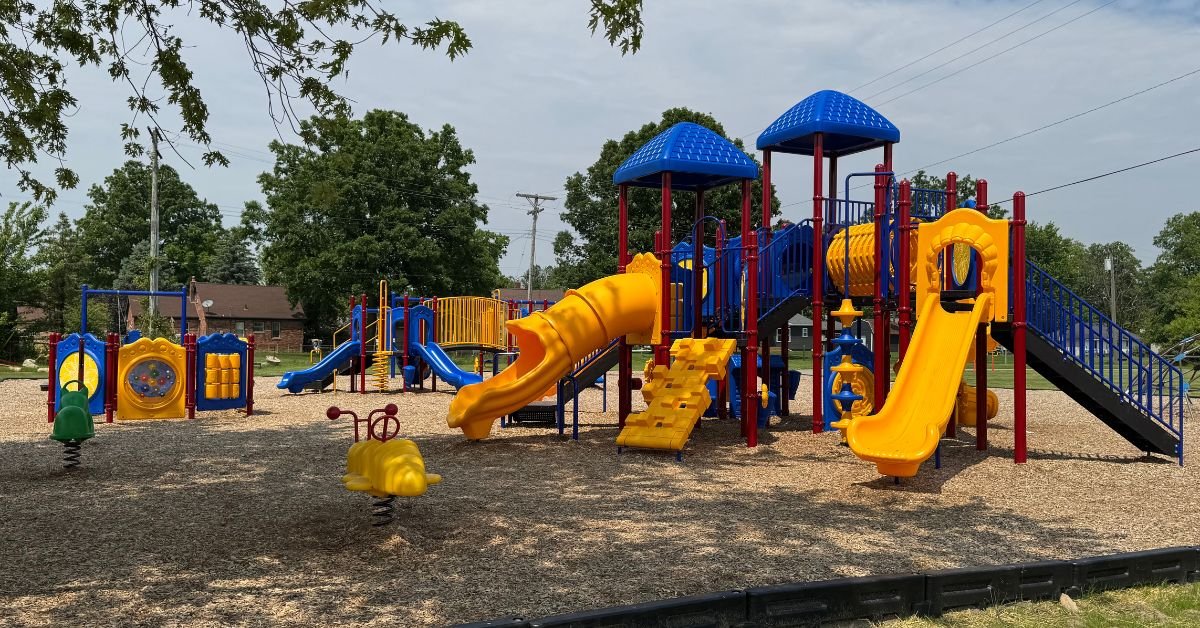
How Playgrounds Contribute to Child Development
What’s one place where giggles, excitement, and constant movement collide? Playgrounds! These vibrant spaces aren’t just for fun; they’re incredibly important for a child’s growth. Climbing, swinging, and running help kids build strong bodies, curious minds, and valuable social skills.
Playgrounds are like miniature classrooms that teach lessons that no chalkboard can cover. A child navigating a wobbly bridge learns balance and coordination. Waiting for their turn on the slide builds patience and empathy. Ever notice how kids collaborate to invent new games in the sandbox? That’s creativity and teamwork unfolding in real time.
This post dives into all the ways playgrounds contribute to child development. From the physical benefits of monkey bars to the mental skills developed through imaginative play, you’ll see why these outdoor spaces are so much more than a set of swings. Stick around, and you might just be inspired to rediscover the magic of play!
Boosting Physical Fitness
Kids don’t see playgrounds as fitness centers, but that’s exactly what they are. Running, climbing, and swinging keep little bodies active and strong. Climbing a ladder builds upper body strength, while balancing on a beam strengthens the core and legs. Even sliding down a slide engages their muscles to maintain balance.
Unlike structured sports, playgrounds allow kids to be active in a way that feels like pure fun. This unstructured movement promotes endurance, flexibility, and coordination. Over time, these physical skills set the foundation for more advanced abilities, like biking, swimming, or team sports. Whether at home or down the street, outdoor playsets continue this fitness trend and bring the joy of movement into your neighborhood.
Encouraging Problem-Solving Skills
Every twist, turn, and challenge on a playground offers an opportunity to solve problems. Sliding down a pole might seem easy, but for a cautious child, it’s a puzzle that requires figuring out how to grip, balance, and control their body. A crowded jungle gym forces kids to think about how to maneuver without bumping into others.
These small decisions sharpen decision-making skills in a stress-free environment. You might even see children devising creative ways to use equipment, like turning swings into makeshift launching pads for imaginary adventures. These experiences spark resourcefulness, adaptability, and analytical thinking.
Building Social Skills
Playgrounds are social hubs. Few kids leave without new friends or shared memories. Waiting in line for their turn on the slide requires patience, while asking someone to join a game teaches communication skills. Watching others handle challenges like falling or missing a turn helps children develop empathy and understand social cues.
Group games such as tag or hide-and-seek encourage collaboration and teamwork, while pretend play in areas like playhouses or sandboxes fosters creative cooperation. These interactions go beyond the playground; the ability to negotiate, compromise, and empathize extends to classrooms, family dynamics, and eventually, the workplace. Playgrounds are like rehearsal stages for real-world social relationships, seasoned with laughter and joy.
Sparking Imagination and Creativity
A simple playground transforms into a magical realm the moment kids arrive. That tall slide? It’s now the castle tower under siege. The swings? Suspended rocket ships exploring distant planets.
Playgrounds inspire imaginative play like no other space. Children use their creativity to invent roles, stories, and games that turn everyday equipment into extraordinary settings. Imaginative play nurtures problem-solving, emotional expression, and the ability to think outside the box. When kids practice coming up with ideas and solutions during play, they carry that same creativity into other areas of life, including art, learning, and relationships.
Promoting Emotional Resilience
Learning to deal with challenges is part of growing up, and playgrounds offer the perfect training ground. Missing the monkey bars can feel frustrating in the moment, but getting back up teaches persistence and resilience. Trying again builds confidence in the face of setbacks.
Kids also learn how to manage emotions during social interactions, whether it’s the disappointment of losing a game or excitement about climbing higher than before. These emotional highs and lows teach children how to handle feelings constructively. Over time, these lessons boost self-esteem and emotional intelligence.
Developing Motor Skills
Running across a playground enhances gross motor skills like coordination, speed, and strength. But don’t overlook the fine motor development that also happens! Gripping monkey bars, picking up small toys in the sandbox, or fastening a climbing rope allow kids to build precision and control in their hands and fingers.
These motor skills eventually support daily activities like writing, typing, and tying shoes. Playgrounds challenge big and small movements, offering a holistic approach to physical development. Kids see this as fun rather than hard work, so the process is more enjoyable and rewarding.
Fostering Independence
Playgrounds provide a safe environment for kids to practice decision-making and autonomy. When parents sit back and watch (instead of guiding every move), kids feel empowered to make their own choices. Deciding which structure to try first or how to approach a tricky obstacle builds confidence in their judgment.
Independence also shows up socially, as kids decide who to play with, what games to create, and how to solve problems without adult intervention. These moments of self-reliance help kids develop a sense of control and personal responsibility, which are key traits for future success. The more children experience independence through outdoor play, the more they trust their instincts and feel ready to tackle challenges on their own terms.
Connecting Kids to Nature
Modern life often keeps children indoors, glued to screens or busy with structured activities. Playgrounds create the perfect excuse to step outside. Experiencing fresh air, sunshine, and the soft feel of grass enhances a child’s connection with the natural world.
Being outdoors also supports mental health by reducing stress and boosting mood. Whether they’re listening to birds sing or feeling the warmth of the sun while they play, kids develop an appreciation for their surroundings. Climbing trees near the playground or observing insects in the dirt adds an educational layer to outdoor adventures. Playgrounds are gateways to a lifelong love for nature, showing kids how much fun the outdoors can be.
How do playgrounds contribute to children’s development? They’re where magic comes alive, sparking moments that turn into lifelong memories. Think about the thrill of soaring into the sky on a swing or the triumphant shout after conquering the monkey bars for the first time. It’s the soundtrack of kids growing, learning, and having the time of their lives.
Why not make your next trip to the playground even more exciting? Pack a picnic, bring a ball or two, and invite some friends to join in on the fun.


